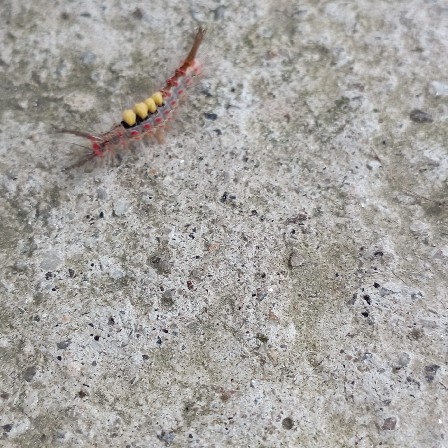
Location: Portugal
Date: 2022-06-20
Time: 16:40:28.641000
Source: Animal Identifier
Caterpillars are the larval stage of members of the order Lepidoptera (the insect order comprising butterflies and moths).
As with most common names, the application of the word is arbitrary, since the larvae of sawflies (suborder Symphyta) are commonly called caterpillars as well. Both lepidopteran and symphytan larvae have eruciform body shapes.
Caterpillars of most species eat plant material (often leaves), but not all; some (about 1%) eat insects, and some are even cannibalistic. Some feed on other animal products. For example, clothes moths feed on wool, and horn moths feed on the hooves and horns of dead ungulates.
Caterpillars are typically voracious feeders and many of them are among the most serious of agricultural pests. In fact, many moth species are best known in their caterpillar stages because of the damage they cause to fruits and other agricultural produce, whereas the moths are obscure and do no direct harm. Conversely, various species of caterpillar are valued as sources of silk, as human or animal food, or for biological control of pest plants.
We have observed Caterpillar 88 times world wild from 2021-05-26 till this date with the last observation being in 2022-06-26 in Germany.
Our data suggest that Caterpillar are highly active in June, September and August world wild but differences observed on country level, while the lowest activity observed on November and May.
We noticed also the top 3 countries to observe Caterpillar in are: Spain, Portugal and Italy respectively.